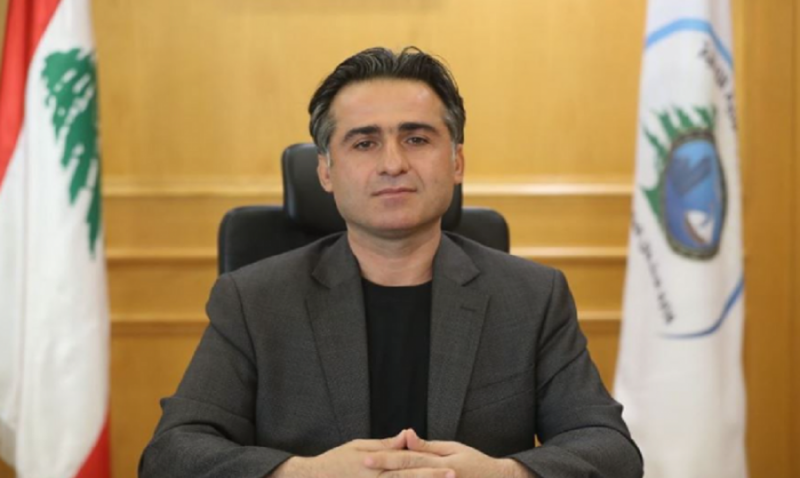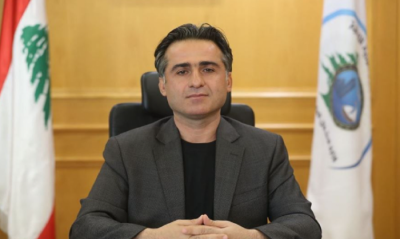Public Works and Transport Minister in the caretaker government, Amin Hamiye, participated in the first Arab-Greek conference held in Athens, Greece, under the slogan "Excellence through Partnership." The event was organized by the Arab-Greek Chamber of Commerce and Development and featured delegations from 16 Arab countries, including representatives from the foreign ministries, development, and shipping sectors, along with the participation of several ministers and ambassadors from various countries worldwide. Approximately 136 Arab and Greek companies, specializing in fields such as land and maritime transport, oil, construction, technology, and communications, were also present, as well as numerous universities and research centers specialized in these areas.
Hamiye emphasized that "developmental integration between the East and West Mediterranean in the ports and maritime transport sector opens promising horizons for exchanging expertise and investment opportunities, especially since the Mediterranean shores are at the heart of global transport corridors. This requires that our ports are qualified to be a mandatory passage to and from these corridors."
He noted that his participation in this first Arab-Greek maritime conference, attended by a broad presence of experts and qualified professionals, is a "vivid and desired expression of the idea of developmental integration between East and West, enhancing the exchange of experiences and exploring investment opportunities in the maritime transport sector and beyond." Hamiye pointed out that "it is no secret that the world today witnesses deepening relationships between countries based on mutual benefit and common interests, especially as major investment companies are seeking a nurturing and attractive environment for their investments."
In this context, he highlighted Lebanon's outlook from the Ministry of Public Works and Transport for all its facilities, particularly in the sectors of ports, airports, and all types of transport, through a strategic perspective that combines its vital geographic location and the role it deserves and aspires to in the coming years and decades.
He added: "Based on that vision, we focused first on the Port of Beirut, where we initiated rapid and diligent work to heal its wounds and shake off the dust of failure and frustration. Our triad of activation, reform, and reconstruction has been our guiding principle, as we firmly believe that Lebanon’s revival must originate from rejuvenating its public facilities, especially and primarily the Port of Beirut. We have managed to increase its revenues by more than 14.5 times within just over a year, working day and night to restore activity to levels before the explosion that had almost ceased."
Hamiye noted that "the reforms we have worked on, alongside activation, aimed at creating a conducive operational and investment environment in this facility. This was achieved through the completion of the new legal framework for the ports sector in Lebanon, which envisions a pivotal and complementary role for the private sector alongside the public sector, particularly in terms of operation. This new framework, awaiting approval by the parliamentary council, represents a qualitative leap that transforms the nation’s ports into specialized and integrated facilities that attract both domestic and foreign private investment across various investment fields, including commercial, tourism, and industrial."
Regarding the reconstruction plan for the Port of Beirut, Hamiye mentioned that "this plan, currently in progress, will position the port as an attractive hub for investments in all commercial and tourism sectors from international investment companies." He welcomed Greek companies to participate, stressing that "the reconstruction will follow a transparent competitive mechanism—without favoritism—based on terms and conditions that adhere to the best global standards, which will positively impact activating the work of Lebanese, Arab, Greek, and international shipping agencies and increasing their number due to the diversity of the sectors served."
He highlighted that "the triad he mentioned is not limited to the Port of Beirut alone but extends to other Lebanese ports, from Tyre to Sidon and reaching the Port of Tripoli," indicating that "activity at the latter has increased more than threefold compared to previous years. Furthermore, we have prepared a short- and medium-term vision for this port aimed at improving, developing, and increasing services, benefiting Lebanon and all countries that open maritime routes with it. This will undoubtedly require an increase in the number of Arabic and international shipping agencies to keep pace with that development."
He continued: "Our work in the ports and maritime transport sector, in particular, started from a strategic and forward-looking vision of the maritime transport sector globally, which necessitated a term that must be grounded in reality: port integration—not only among Lebanese ports but also with other Arab ports. This goal was approved at the recent meeting of Arab transport ministers in Egypt, following a meticulous study of their reality aimed at linking Arab ports to enhance their roles based on precise scientific specialization. This study will be announced soon, in coordination with the Arab League."
Hamiye called on participants to "expand the idea of integration between Arab ports and Greek ports as well, through a scientific and detailed study aimed at enriching the exchange of experiences and achieving mutual benefit, as the Mediterranean shores are positioned at the heart of global transport corridors, necessitating that our ports are equipped to be mandatory passageways in both directions." He considered this not merely an option but a necessary choice amid the fluctuations of politics, strategy, and geopolitics globally.




